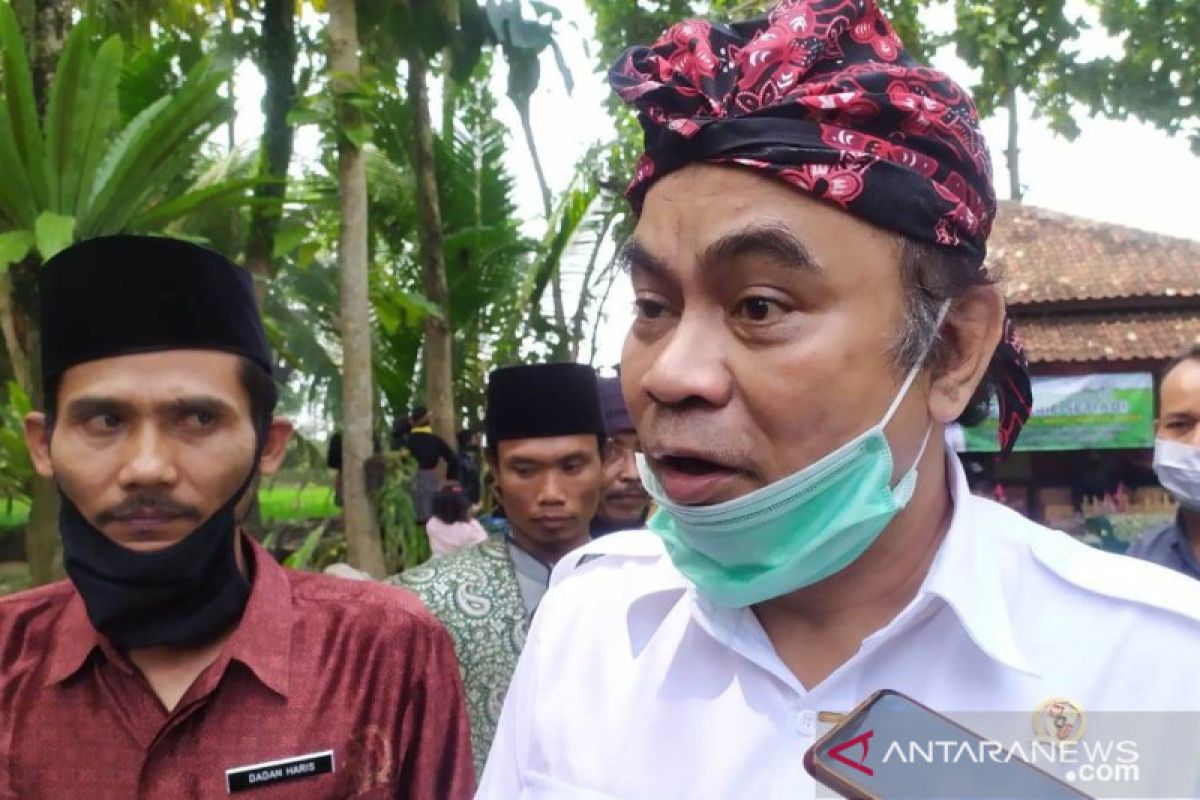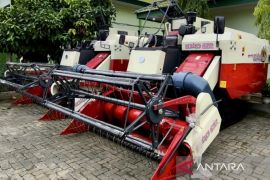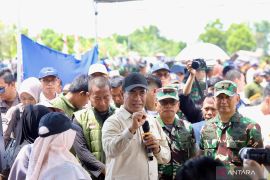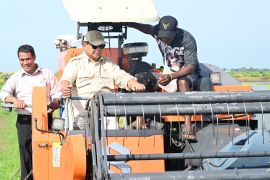Cianjur, W Java (ANTARA) - Indonesian villages have continued to produce food amid the COVID-19 pandemic and are therefore expected to serve as national food buffers, Deputy Minister of Villages, Development of Disadvantaged Regions and Transmigration, Budie Arie Setiadi, said.
"We should have self-sufficiency in all commodities, especially as many villages in Indonesia are food producers, and have (accumulated) a quite large stock (of food) during the (coronavirus) pandemic. Hence, they can serve as national food buffers," Setiadi said here on Thursday.
He said he has urged villages, especially in Cianjur, the country’s main rice producer, to increase production of food crops.
The imposition of large-scale social restrictions (PSBB) in many regions, as part of efforts to curb COVID-19 transmission, has not affected agricultural production although there were restrictions on outdoor activities, the minister said.
"We have been encouraging villages to serve as the national food buffer because the COVID-19 pandemic has allowed almost all villages to keep an adequate supply of food. We should have self-sufficiency in various food commodities," he added.
The country's economic condition, according to Setiadi, is reflected in the development of villages, which are ready to lead post-COVID-19 economic recovery, including in internet growth.
"Some regions in West Java already have the access (to Internet). In Cianjur, out of 354 villages, only 20 did not have access to internet. We will work in coordination with all related institutions to accelerate the recovery of the network," Setiadi said. (INE)
Related news: PUPR Ministry to remodel irrigation system in planned food estate
Related news: Indonesia challenged to achieve its mandated food security: economist
EDITED BY INE










